A multisensory coffee for the tea ceremony
Taking over the ground and first floors of a modern low-rise in Osaka, Tokyo-based studio I IN has created a coffee shop that is futuristic,…
Zaha Hadid Architects, an architectural firm, will build the new Sverdlovsk Philharmonic Concert Hall in Russia in Ekaterinburg. ZHA won this project, coming in ahead of 46 other international teams, in a competition organized by the Ministry of Construction and Infrastructure Development of the Sverdlovsk Region with the help of the Charitable Foundation for the Support of the Ural Philharmonic Orchestra.
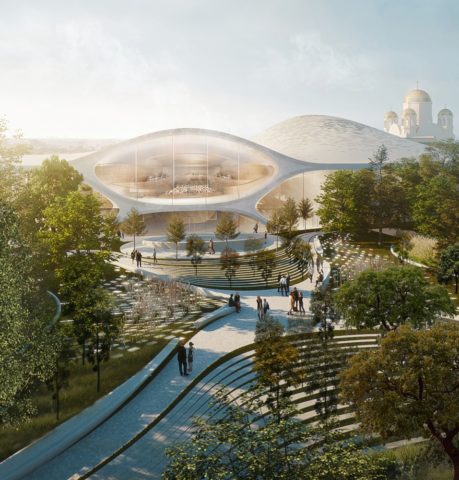
A rich mix of cultures, talents and industries from both East and West make up Ekaterinburg, a strategic city in the Urals that is home to a philharmonic orchestra that has already performed in more than 20 countries.
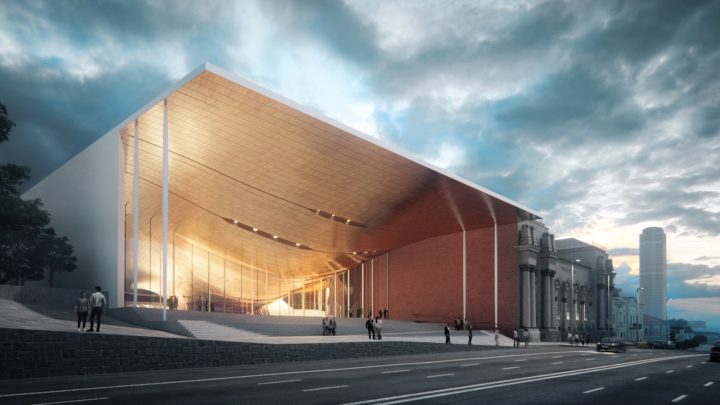
In designing this new hall, ZHA wanted to “echo the physical aspects of sound waves” in order to create a space that would meet the orchestra’s goals. ZHA’s proposal is based on the “properties of sound resonance creating vibrations in a smooth and continuous surface.” This results in a suspended auditorium that seems to float above the entrance esplanade, creating a large awning.
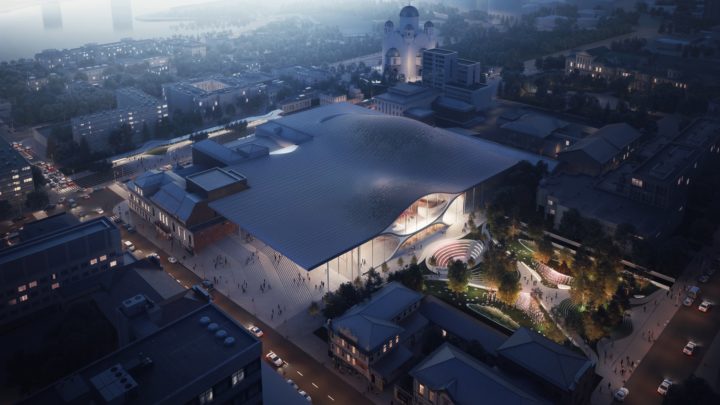
The main concert hall will offer some 1600 seats and a chamber music hall will accommodate nearly 400 people, nestled in the heart of the suspended glass roof. To complete this project, a series of interconnected public spaces will be added, forming a flat roof offering a breathtaking view of the city’s church.
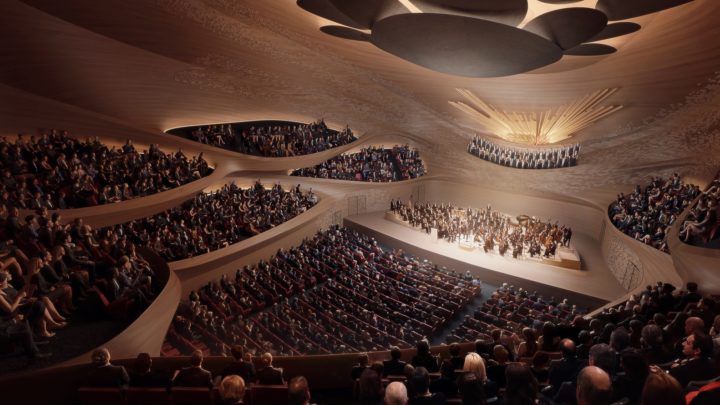
This new concert hall will be located between the existing heritage buildings and the Weiner Gardens. It will be linked to the surrounding landscape by a glass façade opening onto a renovated amphitheater for summer outdoor performances. As part of the project, the existing concert hall will be preserved and renovated and will be an integral part of the new facility.
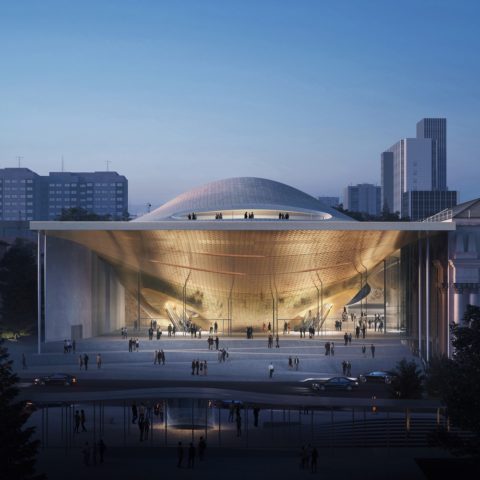
“Russia has had a decisive influence on the creative work of Zaha Hadid Architects. From the beginning of her career, Zaha was attracted to the Russian avant-garde, who designed public spaces as urban condensers catalyzing activities designed to enrich creativity and community, allowing the space itself to improve our understanding and well-being,” said Christos Passas, Project Director, Zaha Hadid Architects.